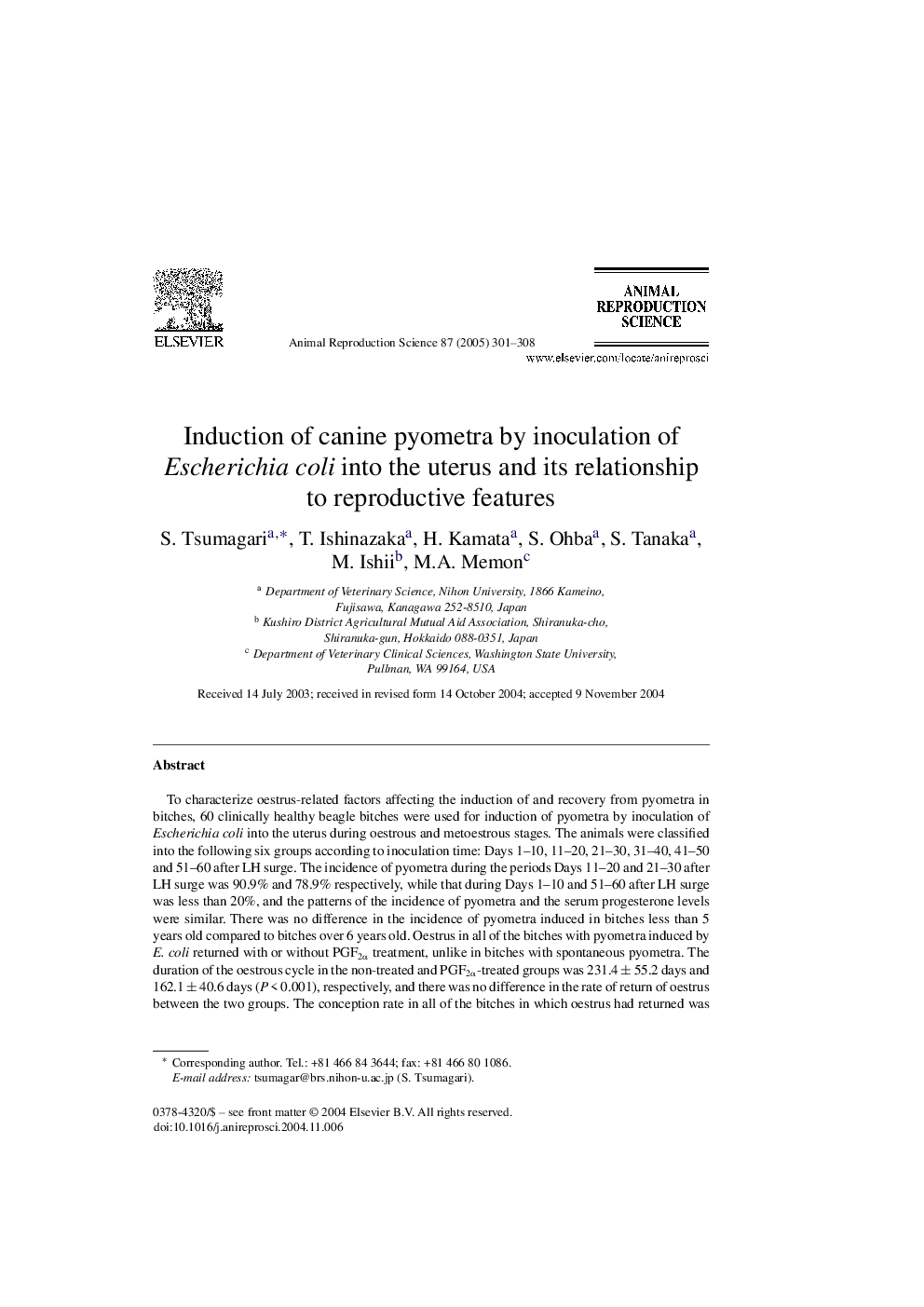| Article ID | Journal | Published Year | Pages | File Type |
|---|---|---|---|---|
| 9900303 | Animal Reproduction Science | 2005 | 8 Pages |
Abstract
To characterize oestrus-related factors affecting the induction of and recovery from pyometra in bitches, 60 clinically healthy beagle bitches were used for induction of pyometra by inoculation of Escherichia coli into the uterus during oestrous and metoestrous stages. The animals were classified into the following six groups according to inoculation time: Days 1-10, 11-20, 21-30, 31-40, 41-50 and 51-60 after LH surge. The incidence of pyometra during the periods Days 11-20 and 21-30 after LH surge was 90.9% and 78.9% respectively, while that during Days 1-10 and 51-60 after LH surge was less than 20%, and the patterns of the incidence of pyometra and the serum progesterone levels were similar. There was no difference in the incidence of pyometra induced in bitches less than 5 years old compared to bitches over 6 years old. Oestrus in all of the bitches with pyometra induced by E. coli returned with or without PGF2α treatment, unlike in bitches with spontaneous pyometra. The duration of the oestrous cycle in the non-treated and PGF2α-treated groups was 231.4 ± 55.2 days and 162.1 ± 40.6 days (P < 0.001), respectively, and there was no difference in the rate of return of oestrus between the two groups. The conception rate in all of the bitches in which oestrus had returned was 81.8%. The above findings indicate that the period during which severe pyometra could be induced was limited to the early stage in metoestrus.
Keywords
Related Topics
Life Sciences
Agricultural and Biological Sciences
Animal Science and Zoology
Authors
S. Tsumagari, T. Ishinazaka, H. Kamata, S. Ohba, S. Tanaka, M. Ishii, M.A. Memon,
